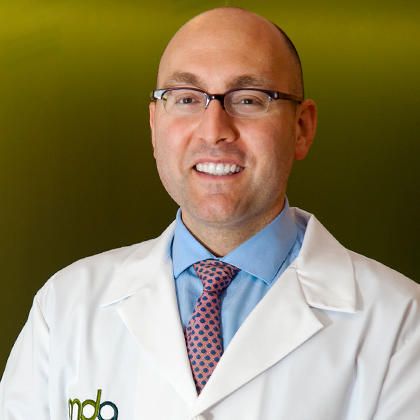Assessing the Value of Integrative Dermatology
In a Q&A, Peter Lio, MD, discusses some evidence for using integrative therapies with patients.
Peter Lio, MD

The American Academy of Dermatology (AAD) Virtual Meeting Experience 2021 boasts a robust agenda showcasing the latest and most exciting data on novel therapeutics. These new therapies have the potential to usher in a new era for dermatology, especially for conditions that have yet to see approved medications.
Even so, it is still worthwhile to take step back and re-assess the value of integrative/complementary approaches to dermatologic care.
HCPLive® had the opportunity to speak with Peter Lio, MD, Clinical Assistant Professor of Dermatology & Pediatrics, Northwestern University Feinberg School of Medicine, about his session, “Integrative Dermatology: What is the Evidence?”. He talked about the session’s highlights as well as his favorite integrative therapies to use.
HCPLive: You will be presenting a session on integrative dermatology at AAD VMX this year. We've previously discussed its use and potential, but would you be able to expound on this topic further and speak more to its value? What will be some of the highlights from your presentations?
Lio: I think integrative approaches are really something that come naturally to most clinicians. To some degree, we are always having to meet the patient halfway or a part of the way.
We know that a lot of patients are interested it. In fact, it seems like increasing numbers of patients are interested in more natural approaches—such as botanicals, or things that are maybe a little bit less scary sounding—especially as adjuncts.
Sometimes we'll put someone on a powerful medicine, and they're doing better, but they're not where we need them to be. So, you're often at this impasse where you say, 'Do we add another powerful medicine? Do we increase the dose (which, of course, typically will also increase the risks)? Or can we be creative? Can we find some other complements that we can add that may help us get the rest of the way?.' And I really believe in that.
Again, naturally in dermatology, I think we do that to some degree anyways. It also is about an approach to the patient as opposed to being very cut-and-dried on everything and saying, 'Well, this requires this. And that's the only way it'll work.'
I love the concept where we can say, 'All right, there are multiple aspects of this condition that we have to address. Therefore, we can use different therapies to work together (ideally, at least) in harmony—if not synergistically—to get the patient better.'
Now, there are certain aspects of integrative approaches that can be detrimental. For one, you can have adverse reactions to natural products, you can be allergic to them, they can have heavy metal toxicity, all these kinds of things.
The other thing is overtreating, where patients will have 12, or 15, or 20, different supplements. And then you see it is now working against them because it becomes very difficult for them to stay on top of it. It's also very expensive for the patient, and so on.
So, as with anything else, if you tighten the string too much, it will break. If you tighten it not enough, it will not play. The middle path is the only way.
Do you have any particular integrative therapies that are your go-to in your practice?
I definitely do. I have a little toolbox of some of my favorites. And there are 3 things that I really think are important when we do this. First, we have to have some evidence that it works. The second is that we really need to make sure that it's safe. And then the third one is that it has to be practical.
Going to the Dead Sea, or balneotherapy, for example, is incredibly helpful because you're getting the sunshine, you're getting the salt water, you're also on vacation and on a beautiful part of the planet. So, there's no doubt that that helps with both atopic dermatitis and psoriasis. But it's not the most practical thing to go to the Dead Sea for most patients.
Instead, some of my favorite things—let's say for psoriasis—includes topical Indigo naturalis, which is powerful. It really has an effect. This has been shown both in clinical and histological studies. You can actually show the improvement in the psoriasiform hyperplasia and in the skin itself. So, I really think that is something that can be used in practice. It's very inexpensive. It's very, very gentle.
Another thing for psoriasis is fish oil supplementation. When I learned about it 20 years ago in residency, the discussion was that it didn't seem to be that helpful. But in re-reviewing the data, we can see it really does seem to make a significant difference for patients. I think it's one of those things that's been lost to the annals of time here, but adding fish oil can help.
There was a beautiful study that showed patients who did fish oil along with their UVB therapy did significantly better than the UVB plus placebo group. So, it really it seems to have a bit of an adjunctive effect.
And then for atopic dermatitis: One of the things I've been very interested in lately is adding hemp oil to the diet. Now, hemp oil has 0 THC, so there's no marijuana. It probably has very, very little cannabinoids (which are exciting as well to me and a very important area of research right now). But, the hemp oil just seems to be really rich in the omega three and omega six fatty acids.
There was a study showing that patients who took hemp oil supplement by mouth actually did significantly better on all these different markers of atopic dermatitis. Again, it's super easy to do, super inexpensive, very safe, and patients get excited about that as an adjunctive therapy.